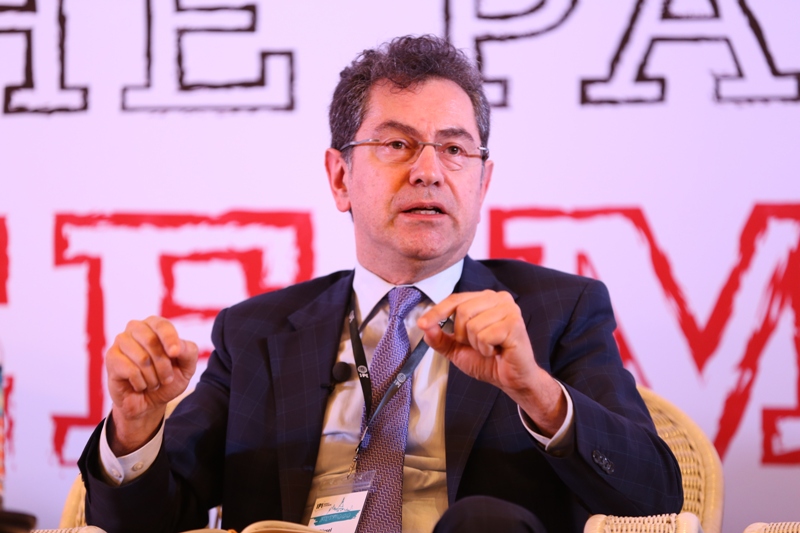The International Press Institute (IPI)’s Executive Board today condemned in the strongest possible terms Turkish authorities’ moves to silence the country’s last remaining critical media following the closure of 15 Kurdish media outlets on Saturday and the arrests Monday morning of at least 13 journalists at Turkey’s most prominent secular opposition newspaper, including IPI Board Member Kadri Gürsel.
Police on Monday launched a mass operation against the newspaper Cumhuriyet, detaining Editor-in-Chief and IPI Member Murat Sabuncu and a dozen other managers and journalists, including virtually all members of the newspaper’s executive board.
Officials later announced an arrest warrant for IPI Executive Board Member and IPI Turkey National Committee Chair Kadri Gürsel, a columnist and editorial adviser at Cumhuriyet. Gürsel was taken into custody Monday afternoon following a raid on his home and is currently being held at Vatan police station in Istanbul. A widely respected journalist and press freedom advocate, Gürsel had been fired in 2015 from his long-time position as a columnist at the newspaper Milliyet for a tweet critical of Turkish President Recep Tayyip Erdoğan.
Those detained can be denied access to a lawyer for up to five days and held for up to one month without an official indictment.
Making use of emergency powers that were put in place following a failed coup attempt in July, the government on Saturday also ordered the closure of 15 Kurdish media outlets including Özgür Gündem and the DİHA news agency, over alleged terrorism ties. Kurdish media had played an increasingly important role in upholding the free flow of information in Turkey, in particular on events in the country’s conflict-ridden southeast, after the government used a combination of legal, regulatory and economic harassment to bring most of Turkey’s mainstream media under its control.
In a collective statement, the 23 other leading global editors and publishers that make up IPI’s Executive Board described the moves against Cumhuriyet and Kurdish media as cementing the Turkish government’s control of news and information in the country.
“Let there be no mistake: We are watching the complete extinguishment of press freedom in Turkey before our eyes,” the Board members said. “Having now fully discarded the rule of law, the Turkish government is removing the last critical voices from its path. Turkey’s international partners, who have tolerated President Erdoğan’s obvious authoritarian ambitions for far too long, cannot allow these latest actions to proceed with impunity. ”
“We call on the authorities to immediately release our colleague Kadri Gürsel, who is an incredibly courageous journalist and a tireless defender of the values that IPI has promoted for over 65 years. He must be freed, along with all our other IPI members and brave friends at Cumhuriyet and all other journalists detained in Turkey.”
IPI Executive Director Barbara Trionfi added: “This latest wave of arrests and closures is yet one more sign that the Turkish government sees the state of emergency as a convenient opportunity to consolidate its power and weaken Turkey’s democratic structures. That a candidate country for membership in the EU tramples so blatantly over fundamental rights and freedoms is shocking and is something that the EU cannot and must not accept.”
The Istanbul Prosecutor’s Office reportedly said in a statement on Monday that the Cumhuriyet journalists were suspected of criminal activity on behalf of an outlawed movement led by the exiled cleric Fethullah Gülen, whom the Turkish government blames for a failed coup attempt in July, and the Kurdish militant group PKK.
Earlier this month Turkey extended the country’s state of emergency, which has seen the purging of tens of thousands of judges, military officials, prosecutors, teachers and civil servants it claims have links to the Gülen movement. Authorities have also jailed over a hundred journalists and closed more than 150 media outlets, many of which have no apparent connection to the Gülenists.
Observers fear that the government may now attempt to replace Cumhuriyet’s executive board with a hand-picked trustee, making an assault on one of its last public critics complete. The paper’s previous editor-in-chief, Can Dündar, left Turkey earlier this year after being sentenced to five years in prison for publishing a report claiming that Turkey’s intelligence agency secretly armed Islamist rebel groups in Syria. Dündar’s home was also raided on Sunday.
